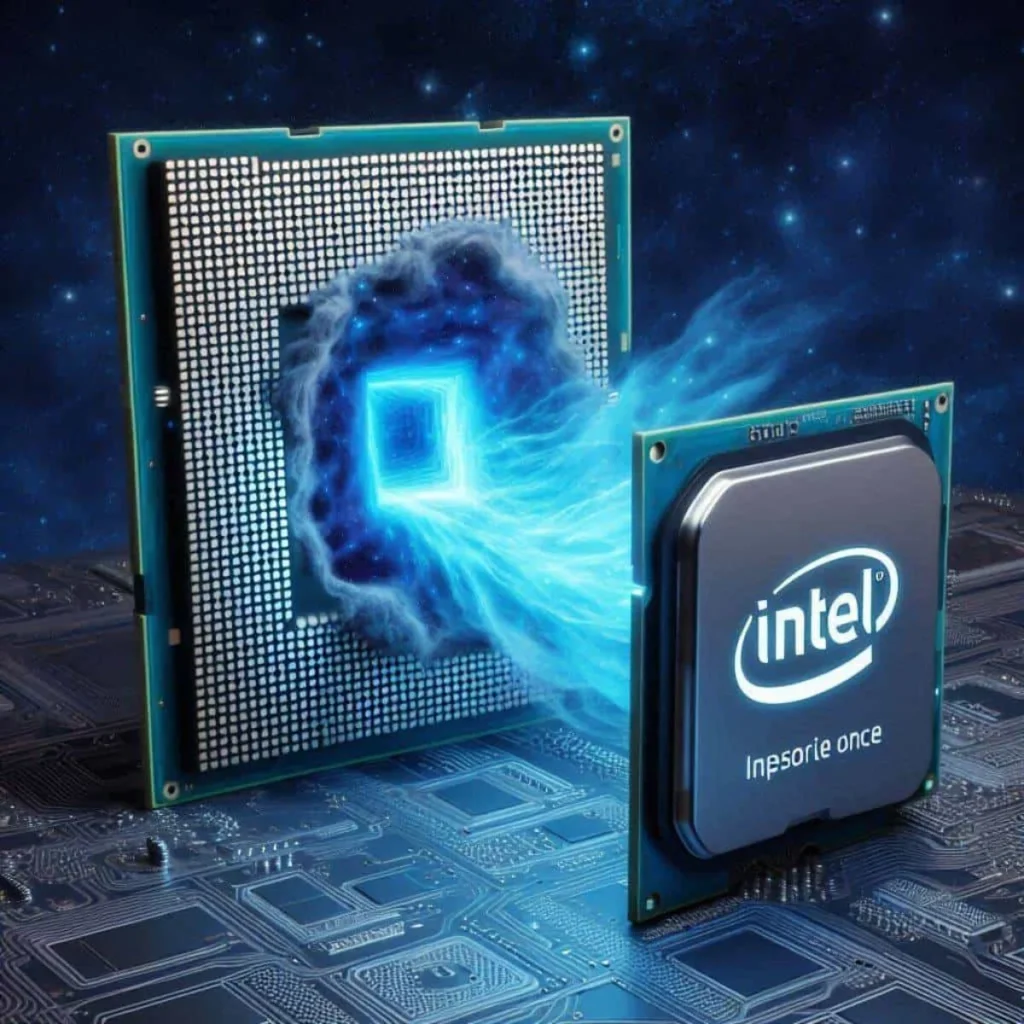Regarding the instability problems affecting its mobile processors from the 13th and 14th generations, Intel has released an official statement. The manufacturer admits that there have been reports linking these processors to instability, including crashes and system hangs. But Intel stresses that these are not difficulties with their mobile counterparts, based on a thorough investigation of identical issues with their desktop CPUs.
The company speculates that rather than being a direct result of the problems impacting desktop CPUs, the symptoms seen on mobile computers could be caused by a variety of possible software or hardware problems. Instead of addressing individual support cases, Intel is recommending consumers to work with the maker of their equipment when they encounter issues. This suggests that users should contact their system manufacturers for assistance.
After reports surfaced describing extreme instability in its top-tier desktop Raptor Lake CPUs, Intel released the following comment. Reliability issues were raised by reports that these processors were unstable and prone to frequent crashes while under stress. A larger concern has been created by the apparent extension of desktop CPU difficulties to mobile versions.
Matthew Cassells, the founder of Alderon Games and developer of the game Path of Titans, has reported experiencing similar instability issues with Intel’s 13th and 14th-generation Raptor Lake laptop CPUs. Cassells noted that while these problems occur less frequently with mobile CPUs compared to their desktop counterparts, several laptops have still suffered from crashes consistent with those reported in desktop models. This suggests that the issues might be affecting mobile processors, particularly those designed for high performance.
Detailed information about the Intel mobile CPU models from the 13th and 14th generations that are most impacted by these problems is not available. Still, it is possible that the flagship HX series processors—which are built for high performance and high power demands—could be among those having issues, given the pattern seen with desktop CPUs. An increased rate of instability has been seen in the desktop versions of these CPUs, particularly in the Core i9 Raptor Lake and Raptor Lake Refresh models. This could be a reflection in the mobile ones as well. This pattern suggests that similar difficulties, especially with regard to preserving stability under stressful circumstances, may be encountered by mobile CPUs.
The situation with Intel’s Raptor Lake CPUs has attracted significant attention, particularly after Alderon Games criticized the company’s desktop CPUs as “defective” and indicated a potential switch to AMD processors. This criticism underscores the significant challenges faced by technology companies in developing high-performance products that also meet reliability standards. The severity of the issues is highlighted by the fact that they have led to serious public criticism from a prominent game developer, demonstrating the real-world impact on users who rely on these processors for demanding tasks.
Intel has yet to release a detailed statement addressing the full extent of the issues, particularly concerning mobile processors. This lack of comprehensive communication has left many users and industry observers uncertain about the full scope of the problem and the company’s plans for addressing it. In the meantime, users experiencing instability with their Intel processors are advised to ensure that their systems are updated with the latest firmware and drivers, as these updates can sometimes alleviate stability issues. However, this may not be a long-term solution for persistent problems, leaving users in a difficult position as they await further developments.
A recent investigation by Hardware Times’ Areej Syed disclosed more problems with Intel’s chips, which only served to exacerbate the situation. Syed stated that because to instability issues, he had to return the Core i9-13900KF processor twice. After The First Descendant was played, the second unit, which had worked well at first, started to crash a lot. Included in Syed’s analysis was an Event Viewer log that revealed a startling 44,242 error incidents overall, indicating serious CPU dependability problems. Intel originally proposed a refund but later stated that reimbursements were not available despite this unmistakable proof of a defective device. Intel appears to be addressing the concerns for at least some of the impacted customers, as seen by stories that have since surfaced suggesting that the corporation is recognizing returns for certain users.
The persistent problems with Intel’s Raptor Lake CPUs—desktop and mobile—draw attention to how difficult it is to create technology that strikes a compromise between dependability and strong performance. The larger instances of instability highlight the need for continued monitoring and support from both Intel and system manufacturers, even while Intel’s statement reassures consumers that mobile processors are not impacted by the same issues as desktop CPUs.
Users are advised to stay up to current on upgrades as things change and to get help if they experience issues with their Intel-powered PCs. It will be vital to address these problems if consumers are to continue having faith in Intel goods and continue to rely on their technology for demanding applications. The company’s reputation and relationships with customers who depend on its processors for important activities will be impacted by how these issues are resolved.
If you like the article please follow on THE UBJ.
